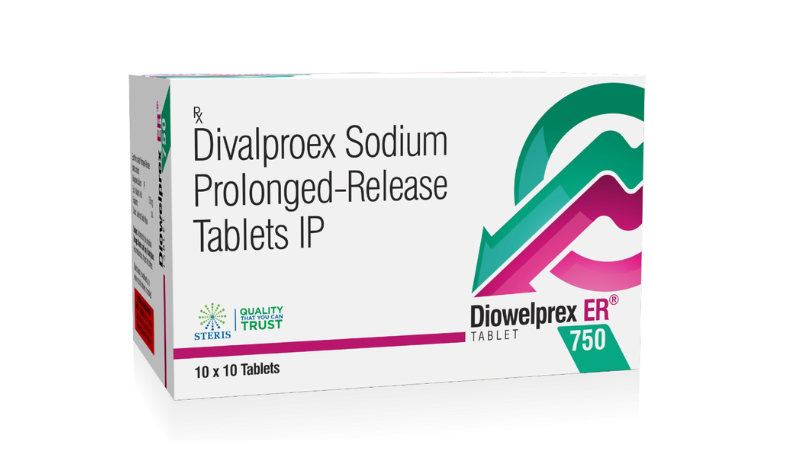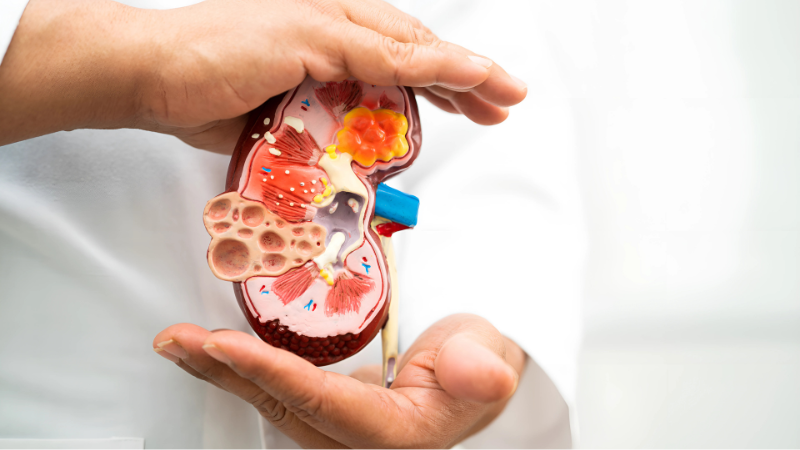Why Having Kidney Disease Can Worsen Diabetes
Nov 22, 2024
Kidney disease and diabetes are deeply interconnected health conditions, each capable of exacerbating the other. Diabetes is one of the leading causes of chronic kidney disease (CKD), and in turn, kidney disease can make managing diabetes more challenging. Understanding this relationship is crucial for effective management and prevention of complications.
For more guidance and products related to diabetic care, visit our website: Steris Online – Diabetic Care.
The Link Between Kidney Disease and Diabetes
1. How Diabetes Affects the Kidneys
Diabetes can damage the blood vessels in the kidneys, impairing their ability to filter waste and excess fluid from the body. This condition, known as diabetic nephropathy, is a leading cause of kidney failure.
2. How Kidney Disease Worsens Diabetes
The kidneys play a vital role in glucose metabolism and insulin clearance. When kidney function declines, these processes are disrupted, leading to fluctuations in blood sugar levels.
Why Kidney Disease Worsens Diabetes
1. Impaired Insulin Clearance
The kidneys help remove insulin from the bloodstream. When kidney function deteriorates, insulin clearance slows down, causing insulin levels to rise. This can lead to:
- Hypoglycemia: As insulin remains in the blood longer, blood sugar levels may drop unexpectedly.
- Difficulty adjusting insulin doses, making diabetes management more complex.
2. Increased Insulin Resistance
Kidney disease can cause systemic inflammation, which contributes to insulin resistance. This makes it harder for cells to use glucose, leading to high blood sugar levels and worsening diabetes control.
3. Disrupted Electrolyte Balance
Kidney disease affects electrolyte levels in the blood, particularly potassium. Abnormal potassium levels can interfere with insulin secretion and glucose metabolism, complicating diabetes management.
4. Hormonal Changes
Damaged kidneys may alter the levels of certain hormones, such as erythropoietin and parathyroid hormone. These changes can indirectly affect glucose metabolism and insulin sensitivity.
5. Increased Cardiovascular Risk
Both kidney disease and diabetes significantly increase the risk of cardiovascular complications. The stress of managing these dual conditions can lead to poor diabetes control, further exacerbating kidney damage.
The Vicious Cycle: Diabetes and Kidney Disease
When diabetes leads to kidney disease, the kidneys lose their ability to filter out toxins effectively. The buildup of waste products in the blood can worsen insulin resistance and glucose control. This creates a vicious cycle where poor diabetes management accelerates kidney damage, and declining kidney function worsens diabetes.
Recognizing the Symptoms of Kidney Disease in Diabetic Patients
Early detection of kidney disease is crucial to prevent further complications. Common symptoms include:
- Swelling in the legs, feet, or hands due to fluid retention.
- Increased urination, particularly at night.
- Fatigue and weakness.
- Difficulty concentrating or mental fog.
- Persistent itching due to toxin buildup.
Preventing Kidney Disease from Worsening Diabetes
1. Monitor Blood Sugar Levels Closely
Consistently managing blood sugar levels helps prevent additional stress on the kidneys. Regular monitoring allows for early detection of fluctuations and timely adjustments.
2. Manage Blood Pressure
High blood pressure accelerates kidney damage. Keeping blood pressure within a healthy range is vital for slowing kidney disease progression and maintaining glucose control.
3. Follow a Kidney-Friendly Diet
Diet plays a significant role in managing both conditions. Consider:
- Reducing sodium intake to prevent fluid retention and high blood pressure.
- Limiting protein consumption to reduce strain on the kidneys.
- Monitoring carbohydrate intake to maintain stable blood sugar levels.
4. Regularly Check Kidney Function
Frequent tests for kidney function, including glomerular filtration rate (GFR) and urine albumin levels, can help track the progression of kidney disease and adjust diabetes treatment accordingly.
5. Use Medication Wisely
Medications for diabetes and kidney disease should be tailored to avoid additional kidney strain. Always consult your healthcare provider for the best options.
6. Stay Active
Regular physical activity helps improve insulin resistance and supports overall kidney and heart health.
When to Seek Medical Help
If you experience sudden changes in blood sugar levels, swelling, or other symptoms of kidney disease, consult a healthcare professional immediately. Early intervention can prevent further complications and improve quality of life.
For expert advice and reliable diabetic care products, explore our range at Steris Online – Diabetic Care.
Conclusion
The relationship between kidney disease and diabetes is complex and requires careful management. Kidney disease not only worsens diabetes by disrupting insulin regulation and glucose metabolism but also increases the risk of severe complications. By understanding this connection and adopting proactive measures, patients can break the vicious cycle and improve their overall health.
Visit Steris Online – Diabetic Care for comprehensive solutions and expert guidance to manage diabetes effectively. Take charge of your health today!.
Recent Post

Memantine 5 mg: MENTATIME 5 Tablet for Alzheimer’s Disease by Steris Healthcare

Desvenlafaxine 50 mg Extended Release Tablets for Effective Depression Relief

Divalproex Sodium 500 mg Extended-Release Tablets for Epilepsy, Bipolar Disorder & Migraine

Cycloserine 250 mg Tablet: View Uses, Benefits, Price & Side Effects.

Divalproex Sodium Extended-Release Tablets 750 mg – DIOWELPREX ER 750 by Steris Healthcare

Benidipine Hydrochloride 4 mg Tablet – Composition, Uses, Dosage & Side Effects Explained

Fluoxetine 20 mg Capsule : Trusted SSRI for Depression, OCD, and Anxiety Relief

Bempedoic Acid 180 mg Tablet: A Complete Guide to BEMPIDOC 180 Composition and Benefits

Atorvastatin and Aspirin Capsules: Discover the Heart Health Benefits of ATOVASTRIN AV 10

Atorvastatin 40 mg tablet uses, Dosage Guidelines, and Cardiovascular Benefits

